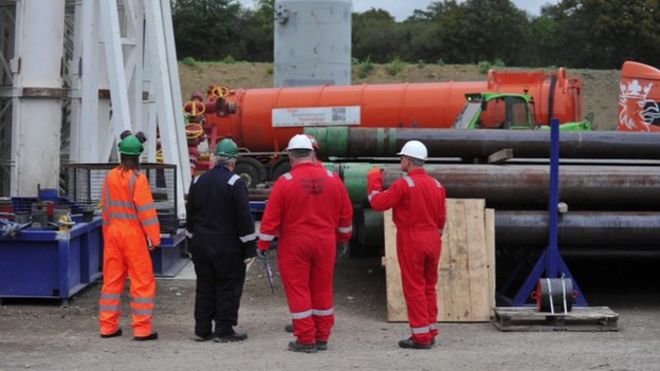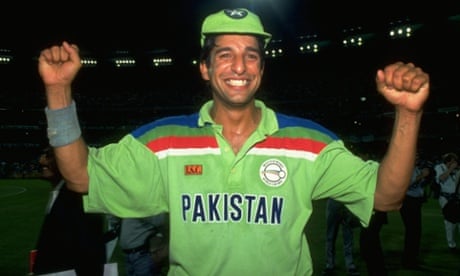His charismatic presence on and off the field has been well documented, but few, if any, speak of how hard he worked to achieve that
Daniel Brettig in Cricinfo
 Expression serious, gaze intense, and concentration fixed - Richie Benaud is at work © Mark Ray
Expression serious, gaze intense, and concentration fixed - Richie Benaud is at work © Mark RayAmong countless images of Richie Benaud, both fluid and still, a most striking shot captures him away from the microphone, the television camera and the commentary box. It was taken by Mark Ray during a Perth Test match between Australia and England in 1991, and shows Benaud typing away fastidiously at a computer while his friend, pupil and fellow commentator Ian Chappell watches.
There is nothing mannered about the image, nor posed. Benaud's face does not bear the warm, wry expression that greeted television viewers the world over for more than 40 years. Instead, his expression is serious, his gaze intense and his concentration fixed. The beige jacket is hung up, and reading glasses sit on his nose. Maybe he is writing a column, maybe he is sending correspondence. Whatever the task, it is abundantly clear that Benaud is working.
Of the many and varied tributes that are flowing for Benaud, most speak of his charismatic presence both on the field as a captain and in the broadcast booth as a commentator. Most talk of his way with words, his mastery of when to use them, and more pointedly, when not to. Many say we will never see another like him, and that he was a unique gift to the game. Few, if any, speak enough of how hard he worked to be all these things.
Benaud was 26, and a four-year fringe dweller in the Australian Test side, when the 1956 Ashes tour concluded, England having kept the urn for a third consecutive series. Most of Ian Johnson's unhappy team-mates could not wait to get home, but Benaud stayed on after asking the BBC if he could take part in a course of television production and presenting. By that stage, he was already working as a police roundsman for The Sun in Sydney, chasing ambulances when he was not honing his slowly developing leg-breaks.
----------
Benaud's tips for aspiring commentators
Everyone should develop a distinctive style, but a few pieces of advice might be:
Put your brain into gear before opening your mouth.
Never say "we" if referring to a team.
Discipline is essential; fierce concentration is needed at all times.
Then try to avoid allowing past your lips: 'Of course'... 'As you can see on the screen'... 'You know...' or 'I tell you what'... 'That's a tragedy..." or "a disaster...". (The Titanic was a tragedy, the Ethiopian drought a disaster, but neither bears any relation to a dropped catch.)
Above all: when commentating, don't take yourself too seriously, and have fun.
--------
The broadcasting and journalism apprenticeship Benaud put himself through was exhaustive and exacting. He grew gradually in grasping the finer points of each trade, and would combine both when he stepped away from playing eight years later, having matured brilliantly as a cricketer and a captain. Cricket and leg-spin had taught Benaud about the level of commitment and perseverance required to succeed - as Bill Lawry has recalled, other players admired how Benaud emerged, not as a natural but a self-made man.
"I think the key to that for all of us was that he wasn't an immediate success," Lawry told The Age. "He worked very hard for four or five seasons, trying to establish himself in the Australian side. He went on one or two tours and hardly played a Test match. The fact he was so dedicated, he won through in the end."
When Kerry Packer's World Series Cricket emerged from its clandestine origins in 1977, Benaud's broadcasting apprenticeship paid off in much the same way as his cricketing one had done. More than 20 years of experience in broadcasting with the BBC and the ABC, among others, meant that he was not only Nine's host and lead commentator but also a sort of consulting producer, someone able to give direction to a crew ostensibly at the ground to direct him.
The polish of Nine's broadcast was there largely because Benaud had applied it himself, with the help of a gifted pair of brains behind the camera in David Hill and Brian Morelli. Having lived through the hectic earlier overnight shifts at The Sun and austere days learning the ropes at the BBC, broadcasting the cricket on Nine was a challenge well within Benaud's range - his unscripted introductions and summaries were as assured and comprehensive as those of the very best broadcasters.
If anything, he was too careful about expressing his opinions, a trait his more outspoken brother and fellow journalist John was never shy in offering a good-natured ribbing about. Nevertheless, Benaud's care with words reflected that he had learned much by spending time writing and speaking on the game. He knew the power of word and image, and made doubly sure he would be prepared enough to make the most of both.
Such dedication is commonplace among professional cricketers, and has become ever more so with each generation following on from the World Series Cricket revolution. But the path Benaud followed from playing into broadcasting has become the road less traveled, if at all. While so many within and without the game will say how much they loved and admired Benaud's work, precious few can be said to have made a genuine fist of following his example.
Chappell is one such figure, having worked assiduously at his writing down the years though never being trained formally as a journalist. Another, Mark Nicholas, traveled the world as a cricket correspondent for various publications including the Telegraph while still playing for Hampshire, and has clearly tried to take after Benaud as much as possible.
But it is a sad truth of 21st century cricket and its broadcasts that no one has truly held themselves to the standards that Benaud set for himself. Too few cricketers see themselves taking up a job in journalism or broadcasting until they can see the end of their playing career looming. Even if they do, it is generally understood that getting an "in" to the commentary box is more a matter of looking the part and having the right relationships than it is about training or aptitude. For that, the broadcasters themselves are as much to blame as the players.
So it is only to be hoped that the lessons of Benaud's life are made ever more indelible by the pain of his death. There will never be another Richie Benaud, but that does not mean that the game's players, writers and broadcasters cannot aspire to emulate him. It is not a matter of pulling on the beige jacket Benaud so often wore on the air, but of working as hard as he was in Ray's photo.



